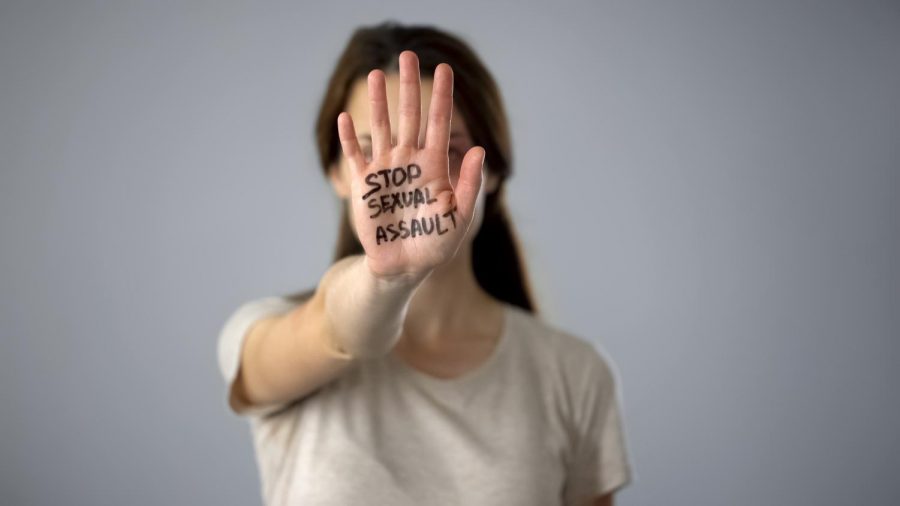Advice: Step in to stop sexual assault
A campus sexual violence prevention coordinator urges students to step in and say something when they witness potentially harmful situations.
April 9, 2021
Anyone can help stop sexual assault if they’re willing to step in when they see it, AACC’s sexual violence prevention coordinator told students on Thursday.
“Bystander intervention” is the intentional act of stepping in to help others who are being harmed, Katie McElhaney said during a virtual event on Thursday.
What happens more often, however, is the “bystander effect,” which means that the more people who witness a harmful event, the less likely anyone will intervene.
Calling the police or stepping in physically are two bystander intervention tactics, McElhaney said.
April is sexual assault awareness month, so the Health & Wellness Center and First Year Experience joined to bring students a virtual wellness and prevention event called, “How to engage in sexual violence prevention in a virtual environment.”
Three traditional bystander intervention strategies for harmful situations, McElhaney said, are to distract, delegate and direct.
To distract, redirect the harmful conversation or activity by spilling a drink on the antagonist or asking to borrow a cellphone charger.
To delegate, involve others around you by asking a friend if the behavior seems sketchy.
To direct, intervene directly with whomever is doing the harm by asking if the person is OK or saying that it’s not funny.
“Also, keep yourself safe,” McElhaney said.
McElhaney presented hypothetical scenarios of harmful events that can happen over social media. One involved a hateful comment about a TikTok dance video. McElhaney asked the audience who would intervene after reading the comment.
“I would say something,” first-year business administration student Jameira Eades said. “[I would write] a smart comment like, ‘[They’re] obviously doing a good job if you’re commenting.’”
According to McElhaney, everyone has a different comfort level when it comes to intervening. She asked audience members what might prevent them from stepping in.
Basic needs coordinator Caitlin Silver shared a personal experience involving someone she knows who was inappropriately touched. As the harmful event occurred, Silver immediately became protective, she said.
“I’m very conflict avoidant but something protective came up in me,” Silver said. “Would I have had the same reaction if [the harmed person] was a stranger?”
According to McElhaney, the college and the county have resources to help students who are not sure if a situation is inappropriate.
The YWCA of Annapolis and Anne Arundel County is just a mile from campus at 1517 Ritchie Highway, Suite 201. The organization supports survivors of sexual violence.
Nurse Beth Mays and the staff of the campus Health & Wellness Center are also available to discuss options with students who have health-related issues.












